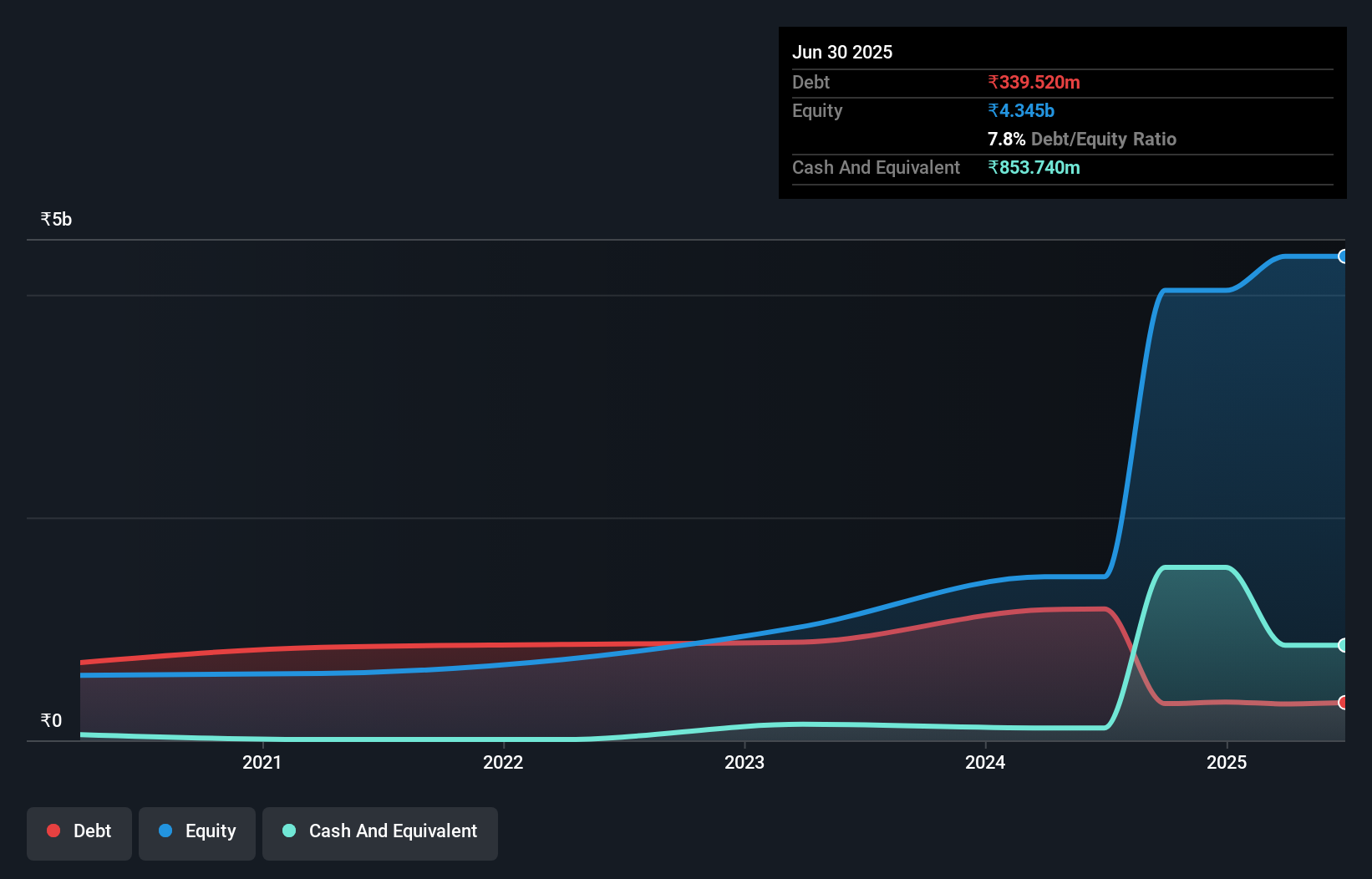Howard Marks put it nicely when he said that, rather than worrying about share price volatility, 'The possibility of permanent loss is the risk I worry about... and every practical investor I know worries about.' So it seems the smart money knows that debt - which is usually involved in bankruptcies - is a very important factor, when you assess how risky a company is. We note that Kross Limited (NSE:KROSS) does have debt on its balance sheet. But is this debt a concern to shareholders?
What Risk Does Debt Bring?
Debt and other liabilities become risky for a business when it cannot easily fulfill those obligations, either with free cash flow or by raising capital at an attractive price. Ultimately, if the company can't fulfill its legal obligations to repay debt, shareholders could walk away with nothing. However, a more frequent (but still costly) occurrence is where a company must issue shares at bargain-basement prices, permanently diluting shareholders, just to shore up its balance sheet. Having said that, the most common situation is where a company manages its debt reasonably well - and to its own advantage. The first thing to do when considering how much debt a business uses is to look at its cash and debt together.
What Is Kross's Net Debt?
The image below, which you can click on for greater detail, shows that Kross had debt of ₹339.5m at the end of March 2025, a reduction from ₹1.18b over a year. However, its balance sheet shows it holds ₹853.7m in cash, so it actually has ₹514.2m net cash.

A Look At Kross' Liabilities
We can see from the most recent balance sheet that Kross had liabilities of ₹1.20b falling due within a year, and liabilities of ₹189.0m due beyond that. Offsetting these obligations, it had cash of ₹853.7m as well as receivables valued at ₹1.85b due within 12 months. So it can boast ₹1.32b more liquid assets than total liabilities.
This short term liquidity is a sign that Kross could probably pay off its debt with ease, as its balance sheet is far from stretched. Simply put, the fact that Kross has more cash than debt is arguably a good indication that it can manage its debt safely.
View our latest analysis for Kross
But the other side of the story is that Kross saw its EBIT decline by 3.4% over the last year. That sort of decline, if sustained, will obviously make debt harder to handle. The balance sheet is clearly the area to focus on when you are analysing debt. But it is Kross's earnings that will influence how the balance sheet holds up in the future. So if you're keen to discover more about its earnings, it might be worth checking out this graph of its long term earnings trend.
Finally, a company can only pay off debt with cold hard cash, not accounting profits. Kross may have net cash on the balance sheet, but it is still interesting to look at how well the business converts its earnings before interest and tax (EBIT) to free cash flow, because that will influence both its need for, and its capacity to manage debt. During the last three years, Kross burned a lot of cash. While that may be a result of expenditure for growth, it does make the debt far more risky.
Summing Up
While we empathize with investors who find debt concerning, you should keep in mind that Kross has net cash of ₹514.2m, as well as more liquid assets than liabilities. So we don't have any problem with Kross's use of debt. The balance sheet is clearly the area to focus on when you are analysing debt. But ultimately, every company can contain risks that exist outside of the balance sheet. These risks can be hard to spot. Every company has them, and we've spotted 1 warning sign for Kross you should know about.
If you're interested in investing in businesses that can grow profits without the burden of debt, then check out this free list of growing businesses that have net cash on the balance sheet.
Valuation is complex, but we're here to simplify it.
Discover if Kross might be undervalued or overvalued with our detailed analysis, featuring fair value estimates, potential risks, dividends, insider trades, and its financial condition.
Access Free AnalysisHave feedback on this article? Concerned about the content? Get in touch with us directly. Alternatively, email editorial-team (at) simplywallst.com.
This article by Simply Wall St is general in nature. We provide commentary based on historical data and analyst forecasts only using an unbiased methodology and our articles are not intended to be financial advice. It does not constitute a recommendation to buy or sell any stock, and does not take account of your objectives, or your financial situation. We aim to bring you long-term focused analysis driven by fundamental data. Note that our analysis may not factor in the latest price-sensitive company announcements or qualitative material. Simply Wall St has no position in any stocks mentioned.
About NSEI:KROSS
Kross
Engages in the manufacture and supply of trailer axles, suspension, and automotive components in India and internationally.
Excellent balance sheet with proven track record.
Similar Companies
Market Insights
Community Narratives





